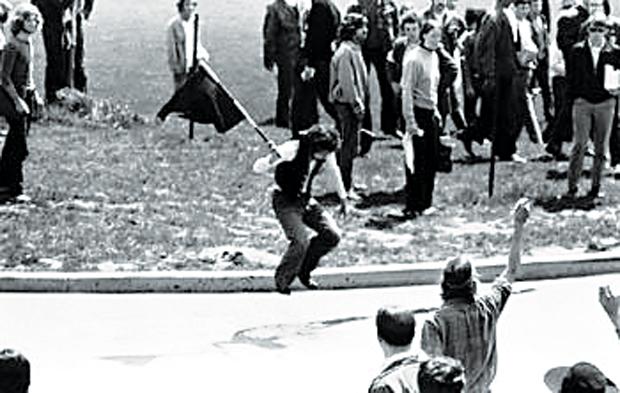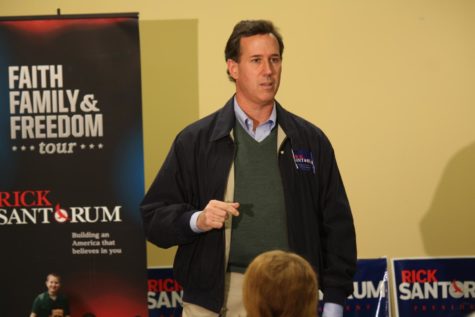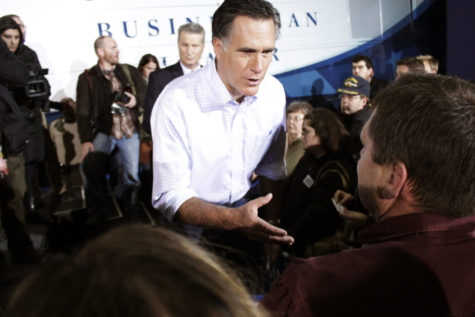Witte: Pining for the 1960s
Photo courtesy of Wikimedia Commons
Opinion – Kent State
September 6, 2011
The 1960s. Just saying it brings about instant reactions, for few decades in American history bring up such immediate emotions, whether they are good or bad. The Space Race, Vietnam, the Civil Rights movement, hippies, Goldwater, rock ‘n’ roll, Students for a Democratic Society; the ’60s were a very turbulent time in our country’s history, and by far the most politically active.
For perhaps the first time in our history, the American people were actually informed and realized they had a voice when it came to the policy of this country. And at the epicenter was us: college students. College students of the ’60s demanded that a war come to an end. Whether it be marching on campuses nationwide or even to the gates of the White House itself, the generation of college students in the late 1960s created public spaces everywhere in which political action was inevitable. The “New Left” was a force to be reckoned with in this country.
Since then, however, college students have become less and less politically minded. The New Left of the ’60s gave rise to the College Republicans of the ’70s with Karl Rove leading the charge. The political movement was to essentially undo that which was brought about in the ’60s. The College Republicans aided greatly in the election of Richard Nixon in 1968, and again in 1972.
Then along came the 1980s and the so-called Reagan Revolution. What did college students have to rebel against in the ’80s? There was no great war, no great struggle like previous generations had and the market of mass entertainment was only just getting tapped. The rise of private economic enjoyment and the bourgeoisie lifestyle had suddenly become more important than fighting for justice and equality.
The 1990s were more or less a continuation of the economic happenings of the ’80s. Administrations changed, and we had a short conflict in Iraq, but otherwise peace had largely endured in America and most things stayed the same.
Then we move to the times we are currently experiencing, which make me long for students that were as politically active as those of the ’60s. I know I do not need to go through the myriad problems this country is facing, as they are on the news nightly. “I don’t have to tell you things are bad, everybody knows things are bad,” as Howard Beale would say.
And what is it that college students are choosing to do these days? Are we using the Free Speech Zone to express political action? Are we challenging the policies, both foreign and domestic, of this country? Are we demanding that the intertwining of corporations and government cease? How about on a more local scale? What about the state of education in this state, and the complete lack of legislation to combat the huge problems we face?
The college students of the ’60s, whether or not you agree with their ideology, were putting their own interests aside for the greater good. They saw the atrocities committed in Vietnam, the persisting racism and inequality of minorities, and did something about it. The public concerns were more important than their own interests, the way political action is supposed to be.
I know what some of you may be thinking by now. “What about the tea party? They’re protesting policies of the government, and you don’t give them any credit. What gives?”
Well, the very nature of the tea party seems to be at odds with the basic reason the students of the ’60s were demonstrating. The main concern of the tea party is all about self-interest. Their express demands are to lower taxes and curb (or if your name is Rick Perry, eliminate) regulations in order for businesses to thrive. Self-interest is not political. It is in fact the absence of politics. To be “political” in order to promote private agendas is not being political at all, it is merely a pseudo-form of political action.
So what is to be done about the lack of political action on college campuses? Has the party culture of college so enveloped students that recovery is unlikely? Is college football more important than social justice? Do bars and clubs take priority over nation-building in Iraq and Afghanistan?
Whatever your cause may be, get political about it. This country was founded on the notion of citizens fighting for their rights, so why should it stop with you? College students of the ’60s certainly knew how to be political and, after all, we are college students too, are we not?









